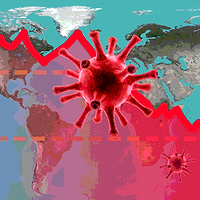Applied science can pose some serious difficulties for the effective transmission of information due to the many variables and unanswered questions that can be encountered at any moment, as well as the dependence on multidisciplinary groups. Food safety is one of those areas where government and industry guidance documents usually go beyond the available data provided by research papers. In the case of establishing produce field and irrigation water setback distances from concentrated animal feeding operations (CAFOs), the corresponding risk evaluation is complex since it takes into account many considerations such as possible transmission vectors, environmental conditions, seasonal changes, appropriate testing methods, CAFO characteristics, and so on. Research on this topic is insufficient, although setback distances have been established using the available information.
The Center for Produce Safety is providing assistance in this area by funding on-farm and modeling research to pinpoint aerosolized pathogen transfer to produce fields. In terms of communication, the issue should be discussed more often in numerous food-related digital and print publications and explained in a detailed manner using a skeptical-yet-supportive tone that reflects the progress that has been made in recent years.[1]
Communication comes naturally for most people, especially in modern times with the use of social media to the degree of almost becoming a basic necessity. However, the process of conveying information is complicated and requires an understanding of the public, which is usually highly heterogeneous. Science (referring specifically to the natural sciences) is considered a respected endeavor, although it is often misunderstood at the basic level. Similarly, advances in technology are generally accepted, although a lack of comprehension can hold back some ambitious and novel projects through the actions of naive activism and flawed legislation. Science also has some philosophical issues that go beyond the topics that are usually discussed in public settings or even in professional symposia. These problems need to be addressed or at least acknowledged in order to have an acceptable starting point for the simplified expression of complex ideas.
Philosophy of Science
 Philosophy of science is a discipline that deals with the most basic aspects of scientific inquiry, which include clarification of concepts, assumptions, foundations, implications, methodology evaluation, generation of new theories, and communication between experts in different fields or with the general public.[2] An analysis of such depth can show the limitations of scientists with concepts such as reductionism, theory-ladenness, the demarcation problem, and underdetermination (Table 1). Philosophy can provide guidance to research in order to avoid fallacies and speculation that are completely detached from empirical data and logical validity. One of the central issues in philosophy of science is the debate between scientific realism and instrumentalism. The former concept holds that well-confirmed scientific theories are true or at least approximately true, while the latter argues that these theories are useful due to their predictive ability instead of representing reality. For example, realists would contend that the fundamental laws of physics are true and that nonobservable entities, such as quarks, actually exist, while instrumentalists would say that these are convenient intellectual structures that help physicists predict phenomena.[3–6] Ethical issues are an important component of scientific progress, as technological advancements generate new sets of scenarios that need to be analyzed in detail to avoid or minimize negative consequences. Human reproductive cloning and germline gene editing are examples that come to mind when discussing possible situations where science is unchallenged.[7,8]
Philosophy of science is a discipline that deals with the most basic aspects of scientific inquiry, which include clarification of concepts, assumptions, foundations, implications, methodology evaluation, generation of new theories, and communication between experts in different fields or with the general public.[2] An analysis of such depth can show the limitations of scientists with concepts such as reductionism, theory-ladenness, the demarcation problem, and underdetermination (Table 1). Philosophy can provide guidance to research in order to avoid fallacies and speculation that are completely detached from empirical data and logical validity. One of the central issues in philosophy of science is the debate between scientific realism and instrumentalism. The former concept holds that well-confirmed scientific theories are true or at least approximately true, while the latter argues that these theories are useful due to their predictive ability instead of representing reality. For example, realists would contend that the fundamental laws of physics are true and that nonobservable entities, such as quarks, actually exist, while instrumentalists would say that these are convenient intellectual structures that help physicists predict phenomena.[3–6] Ethical issues are an important component of scientific progress, as technological advancements generate new sets of scenarios that need to be analyzed in detail to avoid or minimize negative consequences. Human reproductive cloning and germline gene editing are examples that come to mind when discussing possible situations where science is unchallenged.[7,8]
Scientific research is a social activity like any other occupation; therefore, individuals in this group may have a dilemma between advancing ideas for the collective progress in their area of expertise and doing so for their own rational or personal interests, regardless of an adherence to a strict methodology that would ground research to a particular school of thought. This type of social constraint is important to consider when discussing topics that raise questions from the natural world, which may support the idea that absolute objectivity is completely impossible on this and other disciplines.[9]
Science Communication
As a whole, science communication aims at providing a collective understanding of facts so there is an agreement on the concepts and ideas that can be presented in any setting. To achieve this, communicators must listen to the audience to determine their needs based on their education, particular situations and previous life choices. After this, the public can focus on value judgements about topics such as the environment, social issues, economic policies, and so on. Effective communication does not guarantee complete agreement among any group of people, but it does minimize disagreements when it comes to knowing the scientific stance of a pressing issue. Polarization can derail any attempt at a successful dialog where facts matter less than loyalty to specific principles, although this problem goes beyond the scope of communicating science and should be discussed elsewhere.[10]
The generation of scientific knowledge not only has to follow a particular methodology but also find a way to permeate into culture. Most modern societies rely heavily on scientific concepts since these have been previously accepted in their technological and intellectual development out of necessity and therefore, have an epistemic responsibility—that is, an obligation to obtain, understand, and transfer knowledge to the public. However, there is paradox that affects the integration of science: an increase in information leads to an increase in ignored information. For instance, technological advancements lead to a lesser understanding of their underlying principles, resulting in a cognitively blind society where the vast majority of people only know how to use devices superficially or comprehend the basics of complicated subjects, especially for areas that fall outside the realm of their expertise.[11]
Final Thoughts
The issues associated with understanding the natural sciences are very similar to other areas of study, such as sociology. The only difference is the level of exposure and the relative success they have experienced in modern times. Natural science seems to be appreciated from afar only to be substituted by pseudoscience (e.g., homeopathy) and non-science (e.g., continental philosophy) up close. This is an underlying perception that many people experience, which can be observed by their attitudes towards certain topics that overlap with scientific discourse. In the end, governments and intellectuals need to evaluate the public and then orient them into a thought process that is open, objective, critical, and self-correcting in order to better comprehend basic scientific principles and accept them over other concepts that may seem more attractive. This is not an endorsement for scientism, which is the idea that only scientific knowledge is meaningful and can be applied to any discipline. Skepticism should always be part of the process of developing, exposing, and explaining emerging ideas. Such concepts are increasingly important when communicating on food safety and the protection of public health.
Javier Martinez, M.Sc., is the food safety manager at Fresh Concepts.
References
1. www.thepacker.com/article/distance-cafos-looking-risks-and-how-mitigate-them.
2. Laplane, L., et al. 2019. “Why Science Needs Philosophy.” Proc Natl Acad Sci USA 116(10):3948–3952.
3. Cacioppo, J.T., G.R. Semin, and G.G. Berntson. 2004. “Realism, Instrumentalism, and Scientific Symbiosis: Psychological Theory as a Search for Truth and the Discovery of Solutions.” Am Psychol 59(4): 214–223.
4. Fleming, L. 2017. “Two Dogmas of Biology.” PTPBio 9(2):1–14.
5. Hitchcock, C., “Introduction: what is the philosophy of science?” in Contemporary Debates in Philosophy of Science, ed. C. Hitchcock (Malden, MA: Blackwell, 2004), 1–19.
6. Norris, C. 2011. “Hawking contra Philosophy.” Philosophy Now 82.
7. Ayala F.J. 2015. “Cloning Humans? Biological, Ethical, and Social Considerations.” Proc Natl Acad Sci USA 112(29):8879–8886.
8. McConnell S. C. and A. Blasimme. 2019. “Ethics, Values, and Responsibility in Human Genome Editing.” AMA J Ethics 21(1):E1017-–1020.
9. Magnus, P.D. 2014. “Science and Rationality for One and All.” Ergo 1(5):129–138.
10. Fischhoff, B. 2013. “The Sciences of Science communication.” Proc Natl Acad Sci USA 110(3):14033–14039.
11. Pacho, J. 2012. “Epistemic Responsibility, Cultural Responsibility.” Revista Internacional de Filosofía 55:39–55.




